Newly Single Wanting to Date Again
| | CIA Confirms Part in 1953 Iran CoupDocuments Provide New Details on Mosaddeq Overthrow and Its AftermathNational Security Archive Calls for Release of Remaining Classified RecordNational Security Archive Electronic Briefing Volume No. 435Posted – August nineteen, 2013 Edited by Malcolm Byrne For more information contact: |
Related Links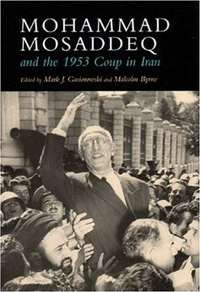 Mohammad Mosaddeq and the 1953 Coup in Iran By Marking J. Gasiorowski and Malcolm Byrne, Syracuse University Printing, May 1, 2004 Mohammad Mosaddeq and the 1953 Insurrection in Iran The Secret CIA History of the Iran Insurrection, 1953 CIA Secrecy Claims Are "Facially Incredible," Says Lawsuit The 1953 Coup lx Years On: A Symposium |
Have the British Been Meddling with the FRUS Retrospective Volume on 1953?Strange Office Worried over Very Embarrassing Revelations, Documents ShowThe United Kingdom sought to expunge "very embarrassing" information nigh its part in the 1953 coup in Iran from the official U.S. history of the period, British documents confirm. The Foreign Role feared that a planned State Department publication would undermine U.K. standing in Iran, according to declassified records posted on the National Security Archive's Web site today. The British censorship attempt happened in 1978, merely London'due south concerns may play a role fifty-fifty today in holding up the State Department's long-awaited history - even though U.South. law required its publication years ago. The declassified documents, from the Strange Part (Strange and Commonwealth Office since 1968), shed calorie-free on a protracted controversy over crucial gaps in the State Section'southward authoritative Foreign Relations of the U.s.a. (FRUS) series. The blank spots on Iran involve the CIA- and MI6-backed plot to overthrow the state's prime minister, Mohammad Mosaddeq. Six decades later on his ouster, some signs point to the CIA as the culprit for refusing to allow bones details nigh the event to be incorporated into the FRUS compilation.[1] Recently, the CIA has declassified a number of records relating to the 1953 insurrection, including a version of an internal history that specifically states the agency planned and helped implement the coup. (The National Security Archive obtained the documents through the U.Southward. Freedom of Information Human action.) This suggests that ongoing CIA inflexibility over the FRUS volume is non so much a function of the agency's worries nearly its own part being exposed every bit a function of its want to protect lingering British sensitivities near 1953 - especially regarding the activities of U.Yard. intelligence services. There is too bear witness that Country Department officials have been only as anxious to shield British interests over the years. Regardless of the reasons for this continued secrecy, an unfortunate upshot of withholding these materials is to guarantee that American (and world) public understanding of this pivotal episode will remain distorted. Another issue is to continue the outcome alive in the political arena, where it is regularly exploited by circles in Iran opposed to effective ties with the United States. Groundwork on FRUS and the Mosaddeq Flow By statute, the FRUS series is required to nowadays "a thorough, accurate, and reliable documentary record" of American foreign policy.[2] That police came about partly as a event of the failure of the original volume covering the Mosaddeq period (published in 1989) to mention the U.S. role in his overthrow. The reaction of the scholarly community and interested public was outrage. Prominent historian Bruce Kuniholm, a former member of State's Policy Planning Staff, called the volume "a fraud."[3] The total story of the scandal has been detailed elsewhere,[4] but near observers blamed the omission on the intelligence customs (IC) for refusing to open its relevant files. In fact, the IC was not alone. Senior Department officials joined in opposing requests for admission to detail classified records past the Historical Advisory Commission (HAC), the group of independent scholars charged with advising the Department's own Office of the Historian.[5] The head of the HAC, Warren Cohen, resigned in protest in 1990 citing his inability to ensure the integrity of the FRUS serial. Congress became involved and, in a display of bipartisanship that would be stunning today (Democratic Senator Daniel P. Moynihan getting Republican Jesse Helms to interact), lawmakers passed a nib to prevent similar historical distortions. Every bit Cohen and others pointed out, while Moscow was disgorging its scandalous Common cold State of war secrets, Washington was taking a distinctly Soviet approach to its own history.[6] By 1998, State's historians and the HAC had decided to produce a "retrospective" volume on the Islamic republic of iran coup that would assistance to correct the record. They planned other volumes to cover additional previously airbrushed covert activities (in Guatemala, the Congo, etc.). It was a promising step, yet 15 years later, while a couple of publications have materialized, several others take not - including the Islamic republic of iran book.[7] Institutional Delays A review of the bachelor minutes of HAC meetings makes it credible that over the past decade multiple policy, bureaucratic, and logistical hurdles have interfered with progress. Some of these are routine, even inevitable - from the complications of multi-agency coordination to frequent personnel changes. Others are more specific to the realm of intelligence, notably a deep-seated uneasiness in parts of the CIA over the notion of unveiling putative secrets. In the Fall of 2001, an ominous development for the HO gave a sense of where much of the power lay in its relationship with the CIA. Co-ordinate to notes of a public HAC meeting in October 2001, the CIA, on instructions from the Manager of Cardinal Intelligence, decided unilaterally "that there could be no new concern" regarding FRUS until the two sides signed an MOU. Bureau officials said the certificate would address legitimate IC concerns; HAC members worried information technology would mainly boost CIA command over the series. The agency specifically held upwardly action on four volumes to make its point, while HAC historians countered that the volumes were beingness "held hostage" and the HO was being forced to piece of work "under the threat of 'blackmail'."[viii] The CIA held firm and an understanding emerged in May 2002 that, at least from available information, appears to curve over backwards to give the IC extraordinary safeguards without offering much reassurance about fundamental HO interests. For example, the MOU states that the CIA must "meet HO's statutory requirement" - inappreciably something that seems necessary to spell out. At the aforementioned time, it allows the CIA to review materials not once, but again fifty-fifty afterward a manuscript has passed through formal declassification, and in one case more after information technology is otherwise in final form and ready for press. In the context of the disputed Iran volume, HAC members worried well-nigh the "random" nature of these provisions which gave the agency "a second bite at the apple."[9] The implication is that the CIA will feel footling obligation to assist meet the HO's legal requirement if it believes its own "equities" are at stake. (This of grade may nonetheless bear upon the Iran volume, currently scheduled for 2014 publication.) Is Information technology the British? As mentioned, the CIA has begun to release documentation in recent years making explicit its connection to the Mosaddeq overthrow. Even earlier, by 2002, the State Department and CIA jointly began compiling an Iran retrospective volume. These are not signs of a key institutional unwillingness to publish American materials on the coup (although parts of the CIA continued to resist the notion). The HO even tried at least twice previously to organize a joint projection with the British Strange and Commonwealth Office on Iran, merely the idea plainly went nowhere.[10] In 2004, two years later, the State Department'southward designated historian finished compiling the book. According to that historian, he included a number of records obtained from research at the and then-Public Tape Function in London. Among his findings was "material that documents the British office." He added that he had as well located State Department records "that illustrate the British function."[11] By no later than June 2006, the Islamic republic of iran book had entered the declassification queue. At the June 2006 HAC session, CIA representatives said "they believed the commission would exist satisfied with the [declassification] reviews." Upwardly to that bespeak, the agency'due south signals seemed generally positive near the prospects of making public previously closed materials. Just in the six years since, no Iran book has emerged. Even Land's committee of historians plainly has never gotten a satisfactory explanation as to why.[12] When the IC withholds records, "sources and methods" are frequently the excuse. The CIA is loath to release anything information technology believes would reveal how the bureau conducts its activities. (For many years, the CIA kept hole-and-corner the fact that it used balloons to drib leaflets over Eastern Europe during the Common cold State of war, and would not confirm or deny whether information technology compiled biographical sketches of Communist leaders.) On the other hand, clandestine operations have been named in more than 20 other FRUS publications.[13] I of these was the retrospective book on PBSUCCESS, the controversial overthrow of Jacobo Arbenz in Guatemala in 1954. Furthermore, the agency has released troubling materials such as assassination manuals that demonstrate how to murder political opponents using anything from "edge weapons" to "bare hands." In 2007, in response to a 15-twelvemonth-onetime National Security Archive FOIA request, the CIA finally released its file of "family jewels" detailing an assortment of infamous activities. from planning to poison foreign leaders to conducting illegal surveillance on American journalists. If the bureau felt information technology could part with such high-profile sources and methods data, along with securely embarrassing revelations about itself, why not in the Iran case? Possibly the British are simply saying no, and their American counterparts are quietly going along. Country Department Early on Warning - 1978 The FCO documents in this posting (Documents 22-35) strongly support this conclusion. Theytell a fascinating story of transatlantic cooperation and diplomatic business organization at a turbulent fourth dimension. It was a Country Department official who beginning alerted the FCO to plans by the Department'southward historians to publish an official business relationship of the 1953 coup catamenia. The Department's Iran adept warned that the records could take "possibly damaging consequences" not just for London simply for the Shah of Iran, who was fighting for survival as he had 25 years earlier (Document 22). Two days later, FCO officials began to pass the message up the line that "very embarrassing things about the British" were likely to be in the upcoming FRUS compilation (Document 23). FCO officials reported that officers on both the Iran and Britain desks at Country were prepared to help keep those materials out of the public domain, at to the lowest degree for the time existence (Document 33). Most 35 years later, those records are still inaccessible. The British government's credible unwillingness to acknowledge what the world already knows is difficult for about outsiders to understand. It becomes positively baffling when senior public figures who are fully aware of the history have already acknowledged London'southward role. In 2009, old Strange Secretary Jack Straw publicly remarked on Britain's function in toppling Mosaddeq, which he categorized every bit i of many exterior "interferences" in Iranian affairs in the final century.[xiv] All the same, present indications are that the U.Thou. government is not prepared to release either its ain files or obviously to approve the opening of American records that might help bring some caste of closure to this protracted historic - and historiographical - episode. (Spring to the British documents) NOTES [i] A recent article drawing attention to the controversy is Stephen R. Weissman, "Why is U.S. Withholding Old Documents on Covert Ops in Congo, Iran?" The Christian Science Monitor, March 25, 2011. ( http://world wide web.csmonitor.com/Commentary/Opinion/2011/0325/Why-is-U.s.a.-withholding-old-documents-on-covert-ops-in-Congo-Islamic republic of iran ) [2] Section 198, Public Police force 102-138. [three] Bruce Kuniholm, "Foreign Relations, Public Relations, Accountability, and Agreement," American Historical Clan, Perspectives, May-June 1990. [4] In addition to the Kuniholm and Weissman items cited above, run across also Stephen R. Weissman, "Censoring American Diplomatic History," American Historical Association, Perspectives on History, September 2011. [5] Joshua Botts, Office of the Historian, U.S. Department of Country, "'A Burden for the Section'?: To The 1991 FRUS Statute," Feb 6, 2012, http://history.state.gov/frus150/research/to-the-1991-frus-statute. [6] Editorial, "History Bleached at State," The New York Times, May xvi, 1990. [seven] Retrospective compilations on Guatemala (2003) and the intelligence community (2007) during the 1950s have appeared; collections on the Congo and Chile are amid those that accept non. [8] HAC minutes, October 15-xvi, 2001, http://history.state.gov/almost/hac/oct-2001. [9] HAC minutes, July 22-23, 2002, http://history.country.gov/about/hac/july-2002; and December 14-15, 2009, http://history.state.gov/about/hac/december-2009. [10] HAC minutes, July 22-23, 2002, http://history.state.gov/about/hac/july-2002. [11]HAC minutes, March 6-vii, 2006, http://history.land.gov/about/hac/march-2006. [12] See HAC minutes for July 12-xiii, 2004, http://history.state.gov/about/hac/july-2004; September 20-21, 2004, http://history.state.gov/near/hac/september-2004; September viii-ix, 2008, http://history.state.gov/about/hac/september-2008; for case. [13] Comments of then-FRUS series editor Edward Keefer at the February 26-27, 2007, HAC coming together, http://history.state.gov/about/hac/february-2007. [14] Quoted in Souren Melikian, "Evidence Ignores Essential Questions nearly Iranian King'southward Role," The International Herald Tribune, Feb 21, 2009. Do Allied Demands for Secrecy Undercut the U.S. Public Interest?The delays in publication of the Iran FRUS volume enhance broader questions well-nigh U.S. authorities justifications for withholding records later on then much time has elapsed. When it comes to foreign government data (known as FGI) U.S. agencies deny access for sometimes decades later on the events they cover - 6 decades in the Iran case, and counting. Consulting with allies before declassifying documents is a long-standing practise, though what exactly that entails is not well understood. The intelligence community regularly invokes FGI and "strange relations" as reasons to deny requests through the Freedom of Information Act (FOIA). In response to a 1999 National Security Archive FOIA lawsuit, the CIA used both rationales in declining to release all merely a single sentence from the 200-page internal history of the 1953 coup written by Donald Wilber.[1] Although agencies often cite legal grounds for keeping information on relations with other governments classified, there is good reason to challenge the ceremoniousness of relying exclusively on those determinations. The following questions enhance additional considerations. They make particular reference to the Islamic republic of iran 1953 case:
NOTES [1] Come across HAC minutes, Feb 25-26, 2008, ( http://history.state.gov/nearly/hac/february-2008); see also "Declaration of William H. McNair…," Baronial 13, 1999, in National Security Archive 5. Central Intelligence Agency, Civil No. 99-1160. ( https://nsarchive2.gwu.edu/NSAEBB/ciacase/EXA.pdf). [2] Quoted in Steven Aftergood, Secrecy News, March ten, 2013. [3] Tim Weiner, "C.I.A. Destroyed Files on 1953 Islamic republic of iran Coup," The New York Times, May 29, 1997. [4] Supreme Leader Ali Khamenei's negative public response emphasized other problems, notably Albright's comment that Iran was ruled by a handful of unelected individuals. [v] See U.Due south. Justice Department, Office of Data Policy, FOIA Update, Vol. 20, No. 1, (undated), http://www.justice.gov/oip/foia_updates/Vol_XX_1/page1.htm. Washington, D.C., Baronial 19, 2013 – Marking the sixtieth ceremony of the overthrow of Iranian Prime Minister Mohammad Mosaddeq, the National Security Archive is today posting recently declassified CIA documents on the United States' part in the controversial operation. American and British involvement in Mosaddeq's ouster has long been public knowledge, simply today'due south posting includes what is believed to be the CIA'southward first formal acknowledgement that the agency helped to plan and execute the coup. The explicit reference to the CIA's role appears in a re-create of an internal history, The Battle for Iran, dating from the mid-1970s. The agency released a heavily excised version of the account in 1981 in response to an ACLU lawsuit, but it blacked out all references to TPAJAX, the code name for the U.S.-led performance. Those references announced in the latest release. Additional CIA materials posted today include working files from Kermit Roosevelt, the senior CIA officer on the ground in Iran during the coup. They provide new specifics also every bit insights into the intelligence agency's deportment before and after the operation. The 1953 coup remains a topic of global interest because and so much about it is still nether intense debate. Even cardinal questions — who hatched the plot, who ultimately carried it out, who supported information technology inside Islamic republic of iran, and how did it succeed — are in dispute.[1] The effect is more than academic. Political partisans on all sides, including the Iranian government, regularly invoke the coup to argue whether Iran or foreign powers are primarily responsible for the country'due south historical trajectory, whether the United States can exist trusted to respect Islamic republic of iran's sovereignty, or whether Washington needs to apologize for its prior interference before amend relations can occur. Also, the public release of these materials is noteworthy because CIA documents most 1953 are rare. Beginning of all, bureau officials have stated that almost of the records on the coup were either lost or destroyed in the early 1960s, allegedly considering the record-holders' "safes were besides full."[2] Regarding public access to whatever remaining files (reportedly about 1 cubic human foot of material), the intelligence customs's standard process for decades has been to affirm a coating denial. This is in spite of commitments fabricated two decades agone by three separate CIA directors. Robert M. Gates, R. James Woolsey, and John M. Deutch each vowed to open up upward agency historical files on a number of Cold State of war-era covert operations, including Iran, as a sign of the CIA'southward purported new policy of openness subsequently the collapse of the USSR in 1991.[3] A articulate sign that their pledge would not be honored in exercise came after the National Security Annal filed a lawsuit in 1999 for a well-known internal CIA narrative about the coup. I of the operation's planners, Donald N. Wilber, prepared the account less than a year afterward. The CIA agreed to release just a single sentence out of the 200-page report. Despite the advent of countless published accounts near the operation over the years - including Kermit Roosevelt'due south own detailed memoir, and the subsequent leak to The New York Times of the 200-page CIA narrative history[4] — intelligence agencies typically refused to budge. They take insisted on making a distinction between publicly bachelor information on U.S. activities from non-regime sources and official acknowledgement of those activities, even several decades after the fact. While the National Security Annal applauds the CIA's decision to brand these materials available, today's posting shows clearly that these materials could have been safely declassified many years ago without gamble of damage to the national security. (See sidebar, "Why is the Insurrection All the same a Surreptitious?") Archive Deputy Managing director Malcolm Byrne called for the U.Due south. intelligence community to make fully available the remaining records on the coup period. "There is no longer good reason to go on secrets well-nigh such a critical episode in our recent past. The basic facts are widely known to every school child in Iran. Suppressing the details but distorts the history, and feeds into myth-making on all sides." To supplement the contempo CIA release, the National Security Archive is including two other, previously available internal accounts of the coup. 1 is the narrative referred to above: a 1954 Clandestine Services History prepared by Donald N. Wilber, one of the operation's chief architects, which The New York Times obtained by a leak and first posted on its site in April 2000. The other item is a heavily excised 1998 slice — "Zendebad, Shah!" — by an in-house CIA historian. (The Archive has asked the CIA to re-review the document's excessive deletions for future release.) The posting also features an earlier declassification of The Battle for Islamic republic of iran for purposes of comparison with the latest release. The earlier version includes portions that were withheld in the later release. As oftentimes happens, government nomenclature officials had quite unlike — sometimes seemingly arbitrary — views almost what could and could not be safely made public. Read together, the three histories offer fascinating variations in perspective — from an agency operative to two in-business firm historians (the last being the virtually dispassionate). Unfortunately, they still go out wide gaps in the history, including on some fundamental questions which may never be satisfactorily answered — such as how to apportion responsibility for planning and carrying out the coup amidst all the Iranian and outside actors involved. Simply all 21 of the CIA items posted today (in add-on to fourteen previously unpublished British documents — see Sidebar), reinforce the conclusion that the United states, and the CIA in particular, devoted all-encompassing resources and loftier-level policy attention toward bringing about Mosaddeq'south overthrow, and smoothing over the aftermath. DOCUMENTSCIA RecordsCIA Internal Histories Document ane (Embrace Sheet, Summary, I, II, III, IV, V, Half dozen, 7, Viii, IX, X, Appendix A, Appendix B, Appendix C, Appendix D, Appendix E): CIA, Underground Services History, Overthrow of Premier Mossadeq of Iran: November 1952 - August 1953, Dr. Donald Northward. Wilber, March 1954 Source: The New York Times Donald Wilber was a principal planner of the initial joint U.S.-U.Yard. coup attempt of August 1953. This 200-page business relationship is one of the near valuable remaining records describing the event considering Wilber wrote it within months of the overthrow and provided a peachy deal of detail. Like any historical document, it must be read with intendance, taking into account the author's personal perspective, purpose in writing it, and audience. The CIA routinely prepared histories of important operations for use by hereafter operatives. They were not intended to be made public. Certificate two: CIA, Summary, "Campaign to Install a Pro-Western Government in Islamic republic of iran," draft of internal history of the coup, undated Source: CIA Freedom of Information Act release This heavily excised summary was most certainly prepared in connection with Donald Wilber'southward Clandestine Services History (Document 1). By all indications written not long after the coup (1953-54), it includes several of the phrases Wilber used — "quasi-legal," and "war of nerves," for example. The text clearly gives the impression that the author attributes the coup'southward eventual success to a combination of external and internal developments. Beginning by listing a number of specific steps taken past the U.S. nether the heading "CIA ACTION," the document notes at the terminate (in a handwritten edit): "These actions resulted in literal revolt of the population, [1+ lines excised]. The armed forces and security forces joined the populace, Radio Tehran was taken over, and Mossadeq was forced to flee on 17 [sic] Aug 53." Document 3A & Certificate 3B: CIA, History, The Battle for Iran, author'southward name excised, undated (c. mid-1970s) - (2 versions - declassified in 1981 and 2011) Source: CIA Freedom of Information Act release This posting provides ii separate releases of the same document, declassified xxx years apart (1981 and 2011). Each version contains portions excised in the other. Though no appointment is given, judging from citations in the footnotes The Battle for Iran was written in or after 1974. It is marked "Administrative - Working Paper" and contains a number of handwritten edits. The author was a member of the CIA'southward History Staff who acknowledges "the enthusiastic cooperation" of the agency's Advisers of Operations. The author provides confirmation that most of the relevant files were destroyed in 1962; therefore the account relies on the relatively few remaining records too equally on public sources. The vast bulk of the covert action portion (Section III) remains classified, although the most recent declassification of the document leaves in some brief, merely important, passages. An unexpected feature of the document (Appendix C) is the inclusion of a series of lengthy excerpts of published accounts of the overthrow designed, evidently, to underscore how poorly the public understood the episode at the time. Document 4: CIA, History, "Zendebad, Shah!": The Primal Intelligence Agency and the Fall of Iranian Prime Minister Mohammed Mossadeq, Baronial 1953, Scott A. Koch, June 1998 Source: CIA Freedom of Information Human activity release The most recent known internal history of the insurrection, "Zendebad, Shah!" was written by an in-business firm agency historian in 1998. Information technology is heavily excised (merely currently undergoing re-review by the CIA), with virtually all paragraphs marked Confidential or college omitted from the public version. Still, information technology is a useful business relationship written by someone without a pale in the events and drawing on an array of U.South. authorities and published sources not available to the earlier CIA authors. CIA Records Immediately Before and After the Coup Document v: CIA, memo from Kermit Roosevelt to [Excised], July 14, 1953 Source: CIA Freedom of Data Act release Kermit Roosevelt conveys information about rapidly unfolding events in Tehran, including Mosaddeq'southward idea for a plebiscite on his remaining in office, the prospect of his closing the Majles, and nigh importantly the bear upon President Eisenhower's recent alphabetic character has had in turning society confronting the prime government minister. The U.Southward. authorities publicized Eisenhower'southward undiplomatic letter turning down Mosaddeq's asking for financial aid. The movement was ane of the ways Washington hoped to weaken his political continuing. Document vi: CIA, memo from Kermit Roosevelt to [Excised], July 15, 1953 Source: CIA Liberty of Information Act release Responding to the resignation of Mosaddeq supporters from the Majles, Kermit Roosevelt fires off a program to ensure that other Majles members keep the parliament functioning, the eventual goal being to engineer a no-conviction in Mosaddeq. The memo provides an interesting clue on the subject of whether CIA operatives ever bought votes in the Majles, well-nigh which other CIA sources are vague. Roosevelt urges that as many deputies as possible be "persuaded" to have bast in the parliament. "Recognize will be necessary expend money this purpose and determine precisely who does what." At the determination of the document he appears to tie this scheme into the previously elaborated — but clearly evolving — coup plan. Document 7: CIA, memo from Kermit Roosevelt to [Excised], July xvi, 1953 Source: CIA Freedom of Data Human action release Roosevelt reports on developing plans involving Fazlollah Zahedi, the man who has been chosen to replace Mosaddeq. CIA sources, including the Wilber history, indicate that the armed forces aspects of the plan were to be largely Zahedi's responsibility. This memo supports that (even though many details are excised), just as well provides some insight into the differences in expectations between the Americans and Zahedi. With some skepticism ("Zahedi claims ..."), Roosevelt spells out a serial of events Zahedi envisions that presumably would bring him to the premiership, albeit in a very round-nearly mode. His thinking is conspicuously prompted past his declared unwillingness to commit "'political suicide' past extra-legal move." Document 8: CIA, memo from Kermit Roosevelt to [Excised], July 17, 1953 Source: CIA Liberty of Information Act release The CIA's Tehran station reports on the recent resignations of contained and opposition Majles members. The idea, an opposition deputy tells the station, was to avert Mosaddeq'southward planned public referendum. The memo gives a scrap of insight into the fluidity and uncertainty of developments with each faction undoubtedly elaborating their own strategies and tactics to a certain caste. Document 9: CIA, notation to Mr. [John] Waller, July 22, 1953 Source: CIA Liberty of Information Act release This brief annotation conveys much about both U.S. planning and hopes for Mosaddeq's overthrow. It is a request from Kermit Roosevelt to John Waller and Donald Wilber to make sure that a formal U.S. statement is set in accelerate of "a 'successful' coup." (Meet Certificate x) Document ten: CIA, notation forwarding proposed text of State Department release for later on the coup, August 5, 1953 Source: CIA Freedom of Data Act release This draft text from the State Section appears to be a effect of Roosevelt's request (Certificate 9) to have an official statement bachelor for utilise later on completion of the operation. The draft predates Mosaddeq's ouster by two weeks, just its language — crediting "the Iranian people, under the leadership of their Shah," for the coup — tracks precisely with the neutral wording used by both the State Section and Foreign Function in their official paperwork after the fact. Document 11: CIA, Memo, "Proposed Citation for Communications Personnel who take serviced the TPAJAX Operation," Frank G. Wisner to The Interim Manager of Central Intelligence, August twenty, 1953 Source: CIA Freedom of Information Act release Wisner recommends a special commendation for the work performed by the communications specialists who kept CIA headquarters in contact with operatives in Iran throughout the coup catamenia. "I am certain that you are aware of the exceptionally heavy volume of traffic which this operation has necessitated," Wisner writes — an unintentionally poignant remark given how little of that documentation has survived. Document 12: CIA, Memo, "Citation," Frank G. Wisner to CNEA Sectionalization, August 26, 1953 Source: CIA Liberty of Information Human action release Wisner also requests a commendation for John Waller, the coup overseer at CIA headquarters, "for his work in TPAJAX." Waller's conduct "in no small measure, contributed to the successful result." Document xiii: CIA, "Letter of the alphabet of Commendation [Excised]," author and recipient names excised, August 26, 1953 Source: CIA Liberty of Data Human action release Evidently later on reflection, Frank Wisner concludes that at that place are troubling "security implications" involved in providing a alphabetic character of commendation for a covert operation. Certificate 14: CIA, Memo, "Anti-Tudeh Activities of Zahedi Government," writer'south name excised, September 10, 1953 Source: CIA Freedom of Information Human activity release A priority of the Zahedi government subsequently the coup was to go later the Tudeh Political party, which had been a mainstay of support for Mosaddeq, even if the relationship was more often than not ane of mutual convenience. This is one of several memos reporting details on numbers of arrests, names of suspected Central Committee members, and planned fate of arrestees. The study claims with high specificity on Soviet assist being provided to the Tudeh, including press party newspapers at the diplomatic mission. Signs are reportedly mixed as to whether the party and pro-Mosaddeq elements will attempt to combine forces again. Document 15: CIA, memo from Kermit Roosevelt to [Excised], September 21, 1953 Source: CIA Freedom of Information Act release Roosevelt reports on an intense catamenia of political maneuvering at loftier levels in the Zahedi government. Intrigues, patronage (including a report that the regime has been giving financial support to Ayatollah Behbehani, and that the latter's son is angling for a Cabinet post), and abuse are all dealt with in this memo. Document 16: CIA, memo from Kermit Roosevelt to [Excised], September 24, 1953 Source: CIA Freedom of Information Act release A restless Zahedi is reported to be active on a number of fronts including trying to get a armed forces tribunal to execute Mosaddeq and urging the Shah to burn down several senior military officers including Principal of Staff Batmangelich. The Shah reportedly has not responded to Zahedi'south previous v letters. Certificate 17: CIA, Memo from Kermit Roosevelt to [Excised], October 2, 1953 Source: CIA Freedom of Information Act release Co-ordinate to this account, the Shah remained deeply worried about Mosaddeq's influence, even while incarcerated. Roosevelt reports the Shah is prepared to execute Mosaddeq (afterward a guilty verdict that is a foregone conclusion) if his followers and the Tudeh take any threatening action. Certificate eighteen: CIA, Memo from Kermit Roosevelt to [Excised], October 9, 1953 Source: CIA Freedom of Data Deed release Iranian politics did not calm downwards entirely after the insurrection, every bit this memo indicates, reporting on "trigger-happy disagreements" betwixt Zahedi and his ain supporter, Hoseyn Makki, whom Zahedi threatened to shoot if he accosted whatsoever senators trying to attend a Senate session. Roosevelt also notes two recent payments from Zahedi to Ayatollah Behbehani. The source for these provocative reports is unknown, but presumably is named in the excised portion at the top of the memo. Document nineteen: CIA, memo from Kermit Roosevelt to [Excised], October 20, 1953 Source: CIA Freedom of Information Act release Roosevelt notes a meeting between the new prime government minister, Zahedi, and Ayatollah Kashani, a politically agile cleric and once i of Mosaddeq's primary supporters. Kashani reportedly carps about some of his former National Front allies. Roosevelt concludes Zahedi wants "separate" the front "by wooing Kashani away." Document twenty: CIA, Propaganda Commentary, "Our National Character," undated Source: CIA Freedom of Information Act release This appears to be an instance of CIA propaganda aimed at undermining Mosaddeq's public standing, presumably prepared during Summer 1953. Similar other examples in this posting, the CIA provided no clarification when information technology released the document. It certainly fits the pattern of what Donald Wilber and others after him have described about the nature of the CIA'south efforts to plant dissentious innuendo in local Iranian media. In this instance, the authors extol the virtues of the Iranian character, particularly as admired by the outside world, then decry the descent into "hateful," "crude" and "rude" behavior Iranians take begun to exhibit "ever since the alliance betwixt the dictator Mossadeq and the Tudeh Political party." Document 21: CIA, Propaganda Commentary, "Mossadeq's Spy Service," undated Source: CIA Liberty of Information Act release This propaganda piece accuses the prime government minister of pretending to be "the savior of Iran" and alleges that he has instead built upwards a vast spying apparatus which he has trained on near every sector of gild, from the army to newspapers to political and religious leaders. Stirring upward images of his purported alliance with "murderous Qashqai Khans" and the Bolsheviks, the authors charge: "Is this the way you save Islamic republic of iran, Mossadeq? We know what y'all want to save. You desire to save Mossadeq's dictatorship in Islamic republic of iran!" British RecordsDocument 22 : FCO, Summary Record, "British-American Planning Talks, Washington," Oct 10-11, 1978 Source: The National Athenaeum of the UK (TNA): Public Record Office (PRO) FCO 8/3216, File No. P 333/2, Folder, "Iran: Release of Confidential Records," 1 Jan - 31 Dec 1978 (time to come: TNA: PRO FCO 8/3216) In October 1978, a delegation of British FCO officials traveled to Washington for two days of discussions and comparing of notes on the world situation with their Land Department counterparts. The managing director of the Department's Policy Planning Staff, Anthony Lake (later to serve as President Bill Clinton's national security counselor), led the American side. Other participants were experts from various geographical and functional bureaus, including Henry Precht, the head of the Iran Desk. Beginning in paragraph 22, Precht gives a dour summary of events in Iran: "the worst foreign policy disaster to hit the W for many years." In a fascinating back-and-forth about the Shah, Precht warns it is "difficult to see how the Shah could survive." The British politely disagree, voicing confidence that the monarchy volition survive. Even his State Section colleagues "showed surprise at the depth of Mr. Precht's gloom." In the course of his presentation (paragraph 23), Precht notes almost in passing that the Land Department is reviewing its records from 1952-1954 for eventual release. A British representative immediately comments that "if that were the case, he hoped HMG [Her Majesty's Government] would exist consulted." Document 23: FCO, Minute, B.L. Crowe to R.S. Gorham, "Anglo-American Planning Talks: Iran," October 12, 1978 Source: TNA: PRO FCO viii/3216 This memo recounts Precht's dramatic presentation on Islamic republic of iran two days earlier (run into previous document). "His was substantially a policy of despair," the author writes. When the British follow upwardly with the Americans about Precht'south outlook of gloom, they find that State Department and National Security Council (NSC) staff were merely equally bewildered by his remarks. One NSC staff fellow member calls them "bullshit." Policy Planning Director Lake laments the diverse "indiscreet and sensitive things" the Americans said at the meeting, and asks the British to "be very careful" how they handle them. "On a completely different field of study," the minute continues, "Precht let out … that he was having to get through the records of the 1952/53 Mossadeq menstruation with a view to their release under the Freedom of Data Act [sic]. He said that if released, there would be some very embarrassing things almost the British in them." (Much of this passage is underlined for accent.) The note goes on: "I fabricated a stiff pitch that we should be consulted," but the author adds, "I imagine that it is American documents about the British rather than documents on which HMG accept any lien which are involved." (This is a bespeak that may still exist at issue today since the question of discussing American documents with foreign governments is very different from negotiating over the use of foreign government records.) Document 24: FCO, Alphabetic character, R.J. Carrick to B.L. Crowe, October xiii, 1978 Source: TNA: PRO FCO viii/3216 An FCO official reports that Precht recently approached another British diplomat to say that "he hoped nosotros had not been likewise shocked" by his recent presentation. He says Precht acknowledged being "over-pessimistic" and that in any event he had not been offering anyone'due south view simply his own.[5] Co-ordinate to the British, NSC staff members put more stock in the assessments of the U.M. ambassador to Tehran, Sir Anthony Parsons, than in Precht's. The writer adds that U.S. Ambassador to Islamic republic of iran William Sullivan also shares Parsons' judgment, and concludes, without indicating a source, that even "Henry Precht has now accepted Sullivan's view!" Document 25: FCO, Letter of the alphabet, R.S. Gorham to Mr. Cullimore, "Iran: The Ghotbi Pamphlet and the Mussadeq Menstruum," October 17, 1978 Source: TNA: PRO FCO eight/3216 This cover note (to Document 24) refers to Precht's revelation about the impending American publication of documents on the Mosaddeq menstruum. The author suggests giving some consideration to the implications of this for "our own record of the time." Document 26: FCO, Letter, B.L. Crowe to Sir A. Duff, "Anglo-American Planning Talks," October 19, 1978 Source: TNA: PRO FCO 8/3216 FCO official Brian Crowe summarizes the October 10-11 articulation U.S.-U.K. talks. The document is included here mainly for the sake of comprehensiveness, since it is role of the FCO folder on the FRUS matter. The author repeats the remark from State'due south Anthony Lake that "some of the comments" from the U.S. side on Iran (among other topics) were "highly sensitive" and should not be disclosed - fifty-fifty to other American officials. Document 27: FCO, Letter, J.O. Kerr to B.L. Crowe, "Talks with the Us Planners: Islamic republic of iran," October 24, 1978 Source: TNA: PRO FCO viii/3216 This brief note shows that word is moving upwards the line in the FCO about the forthcoming FRUS volume on Iran. The author conveys a request to have the U.Thousand. diplomatic mission in Washington cheque the risks involved in the potential release of U.S. documents, and "when the Country Department advise to raise them formally with the states." Document 28: FCO, letter, G.G.H. Walden to B.L. Crowe, "Anglo-American Planning Talks: Iran," November x, 1978 Source: TNA: PRO FCO 8/3216 However more interest in the possible State Department release is reflected in this brusque note, at present a month subsequently the joint U.S.-U.Chiliad. talks. Here and elsewhere, the British notes erroneously report that the release will come under the Freedom of Data Deed (or the Public Information Human action, equally given here); they are actually slated for inclusion in the Foreign Relations of the United States (FRUS) series. Document 29: FCO, R.S. Gorham cover note to Streams, "Iran: Release of Confidential Records," attaching typhoon letter to Washington, November fourteen, 1978 Source: TNA: PRO FCO 8/3216 This annotation and draft are included primarily because they are part of the FCO file on this topic. However, the draft alphabetic character does contain some dissimilar wording from the final version (Document 31). Certificate 30: U.S. Embassy London, Letter, Ronald I. Spiers to Sir Thomas Brimelow, March 24, 1975 Source: TNA: PRO FCO 8/3216 Three years earlier Precht'south revelation to his British counterparts, the U.Chiliad. sought general guidance from the Country Department most how the U.S. would handle "classified data received from Her Majesty'due south Authorities." The month before, robust amendments to the U.Due south. Freedom of Data Human activity had gone into effect. This alphabetic character from the number two official in London at the time, Ronald Spiers, offers a detailed response. Britain's awareness of the new amendments and anxiousness well-nigh their implications (including the fairly abstruse question of how underground documents would be handled in court cases) bear witness how sensitive an issue the British considered protection of their information to be. The U.S. Chargé is every bit anxious to provide the necessary reassurances. (More a decade later, Spiers would sharply oppose efforts by the Country Department's Historical Advisory Committee to gain access to restricted documentation for the FRUS series.[half dozen]) Document 31: FCO, Letter, R.South. Gorham to R.J.Due south. Muir, "Islamic republic of iran: Release of Confidential Records," November 16, 1978 Source: TNA: PRO FCO 8/3216 The British embassy in Washington is alerted to the possibility of documents being released on the 1952-54 catamenia. The FCO clearly expects that, every bit apparently has been the case in the past, "at that place should be no difficulty for the Americans in beginning removing … copies of whatsoever telegrams etc from us and US documents which record our views, even in the case of papers which are not strictly speaking 'official information furnished past a foreign government.'" (This raises important questions virtually how far U.S. officials typically go to accommodate allied sensibilities, including to the betoken of censoring U.Southward. documents.) "What is not clear," the letter continues, "is whether they could withhold American documents which referred to joint Anglo/U.s.a. views about, say, the removal of Musaddiq in 1953." Document 32: British Diplomatic mission in Washington, Alphabetic character, R.J.S. Muir to R.South. Gorham, "Iran" Release of Confidential Records," December 14, 1978 Source: TNA: PRO FCO 8/3216 This follow-up to Gorham'southward earlier request (Document 31) is some other reflection of U.K. skittishness about the awaiting certificate release. The embassy officer reports that he has spoken to Henry Precht "several times" about it, and that the British Desk at the State Department is too looking into the affair on London'due south behalf. The objective is to persuade the Department to concord to withhold not just British documents but American ones, too. Document 33: British Embassy in Washington, Letter, R.J.S. Muir to R.S. Gorham, "Iran: Release of Confidential Records," December 22, 1978 Source: TNA: PRO FCO 8/3216 The embassy updates the FCO on the status of the Iran records. Precht informs the embassy that he is prepared to "sit on the papers" to help postpone their publication. Precht'south priority is the potential bear upon on current U.S. and U.Chiliad. policy toward Iran. Conversely, a historian at the State Section makes it clear that his role feels no obligation fifty-fifty to consult with the British about any non-U.K. documents being considered. The historian goes on to say "that he had in the past resisted requests from other governments for articulation consultation and would resist very strongly any such request from us." Simply the aforementioned historian admits that the embassy might "be successful" if it approached the policy side of the Department directly. The diplomatic mission letter ends with a "footnote" noting that Country Department historians "have read the 1952-54 papers and find them a 'marvelous compilation.'" Interestingly, a handwritten annotate on the letter from another FCO official gives a unlike view about the probable consequences of the upcoming certificate publication: "As the revolution [in Iran] is upon us, the trouble is no longer Anglo-American: the offset revelations will be from the Iranian side." In other words, the revolution will bring its ain damaging results, and the revolutionaries will not need whatever further ammunition from the Westward. Certificate 34: FCO, Cover Note, Cohen (?) to Lucas, circa December 22, 1978 Source: TNA: PRO FCO eight/3216 In a handwritten remark at the bottom of this encompass note, an unidentified FCO official voices much less anxiety than some of his colleagues about the possible repercussions of the disclosure of documents on Iran. Referring to a passage in paragraph 3 of the attached alphabetic character (encounter previous document), the writer asks: "why should we exist concerned about 'any other documents'?" The author agrees with the encompass annotation author's suggestion to "let this affair rest for a while," then continues: "I think we ought positively to seek the agreement of others interested to Y." ("Y" identifies the relevant passage on the comprehend note.) Certificate 35: FCO, Coming together Record, "Iran: Policy Review," Dec xx, 1978 Source : British National Athenaeum, FCO 8/3351, File No. NB P 011/1 (Part A), Title "Internal Political State of affairs in Iran" British Foreign Secretary David Owen chairs this FCO meeting on the unfolding crunch in Iran. It offers a window into London's assessment of the revolution and British concerns for the future (including giving "highest priority to getting paid for our major outstanding debts"). The document also shows that not everyone at the FCO believed significant harm would necessarily come to British interests from the FRUS revelations. Although he is speaking about events in 1978, I.T.One thousand. Lucas' comment could apply just equally forcefully to the impact of disclosing London's actions in 1953: "[I]t was usually known in [the Iranian] Government who the British were talking to, and there was zilch nosotros could do to disabuse public opinion of its notions most the British function in Iran." (p. ii) NOTES[one] Just in the final several years, books in English language, French and Persian by Ervand Abrahamian, Gholam-Reza Afkhami, Mohammad Amini, Christopher de Bellaigue, Darioush Bayandor, Mark Gasiorowski (and this author), Stephen Kinzer, Abbas Milani, Ali Rahnema, and others have focused on, or at least dealt in depth with, Mosaddeq and the coup. They comprise sometimes wide differences of view about who was behind planning for the overthrow and how it finally played out. More than accounts are on the manner (including an of import English-language book on Iranian domestic politics by Ali Rahnema of the American University of Paris). [2] Tim Weiner, "C.I.A. Destroyed Files on 1953 Iran Coup," The New York Times, May 29, 1997. [3] Tim Weiner, "C.I.A.'s Openness Derided as a 'Snow Job'," The New York Times, May 20, 1997; Tim Weiner, op. cit., May 29, 1997. (See also the link to the Archive'south lawsuit, in a higher place.) [4] Kermit Roosevelt, Countercoup: The Struggle for the Control of Iran (New York: McGraw-Hill Book Visitor, 1979); The New York Times, Apr sixteen, 2000. [5] Precht recalls that he was originally not slated to be at the meetings, which usually deputy banana secretaries and higher up attended. But the Nearly East segmentation representative for State was unavailable. "I was drafted," Precht said. Being forced to "sit down through interminable and pointless talk" about inapplicable topics "when my plate was already flood" on Iran contributed to a "sour mood," he remembered. (Henry Precht e-mail to author, June 2, 2011.) |
| Contents of this website Copyright 1995-2017 National Security Annal. All rights reserved. |
Source: https://nsarchive2.gwu.edu/NSAEBB/NSAEBB435/
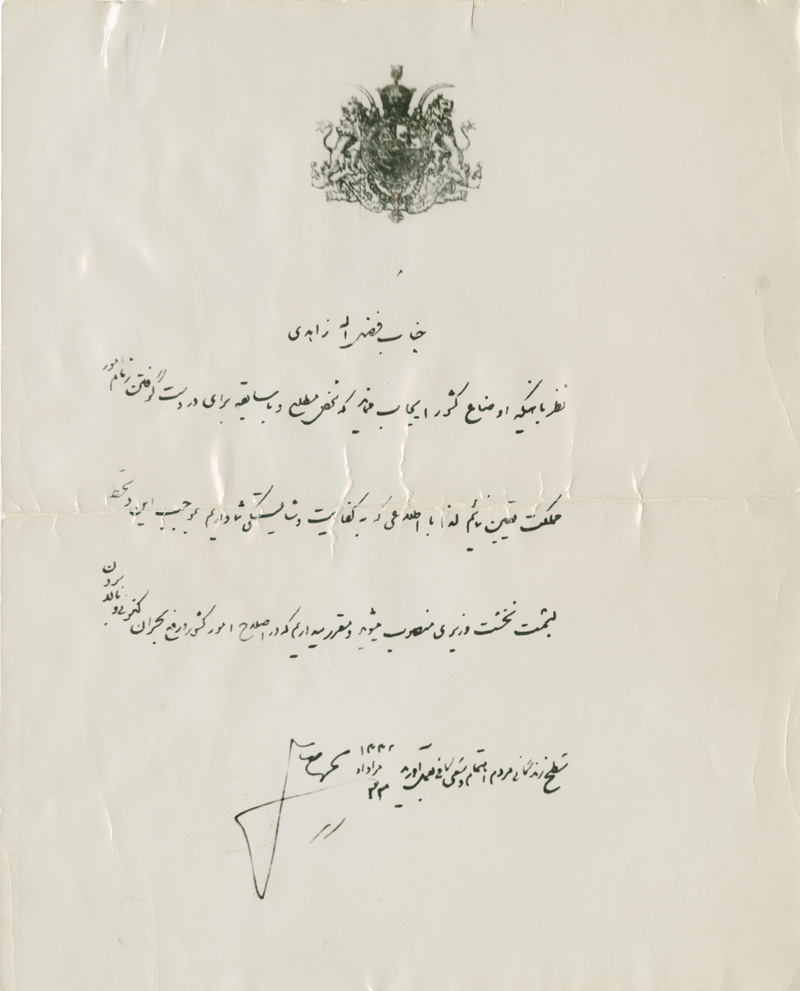
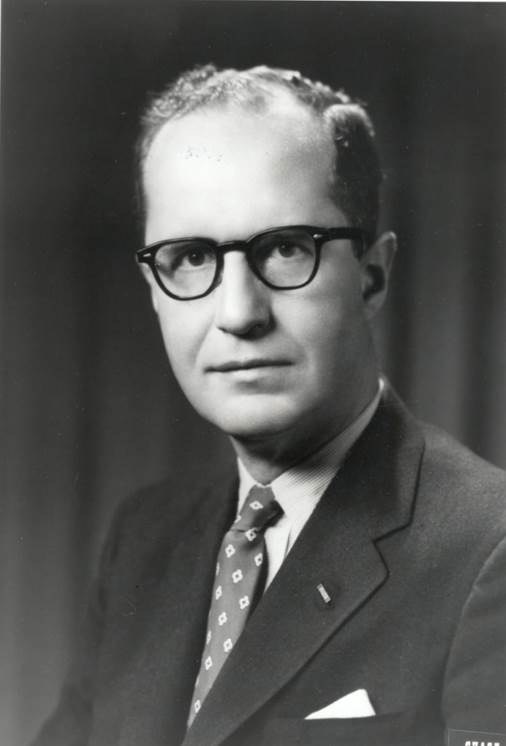

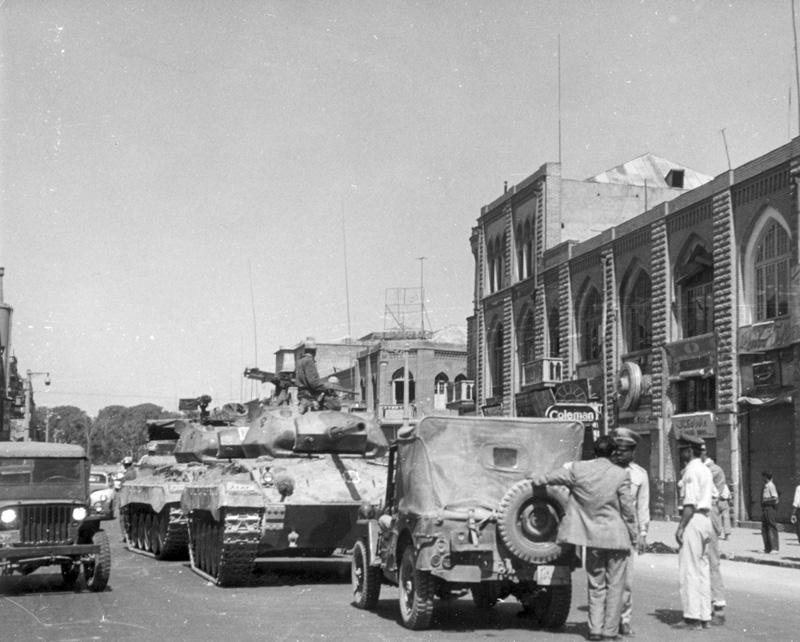
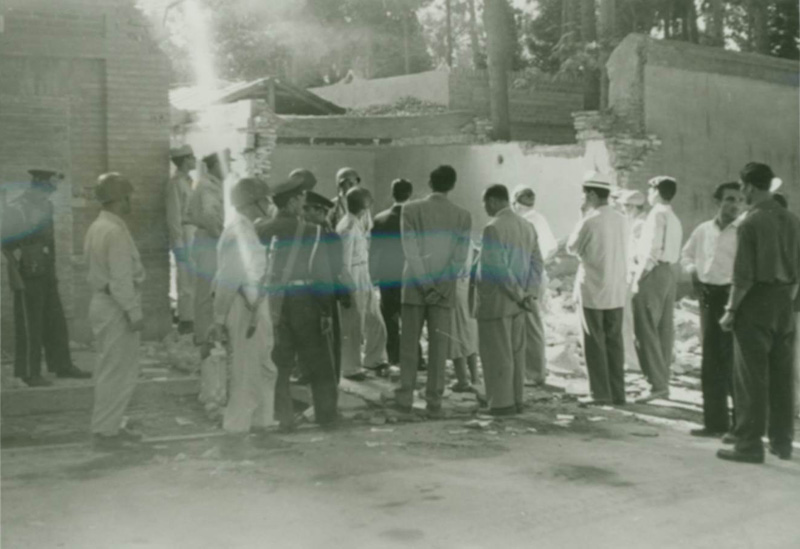
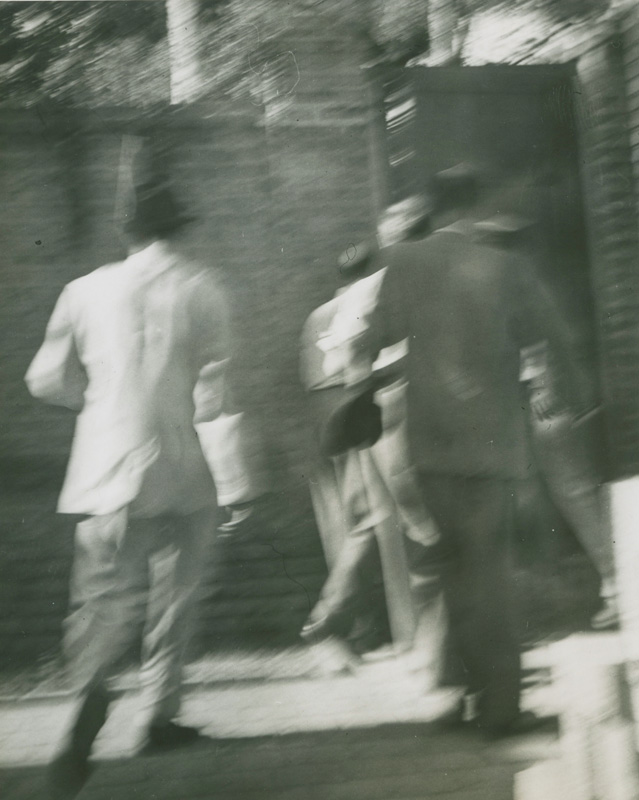

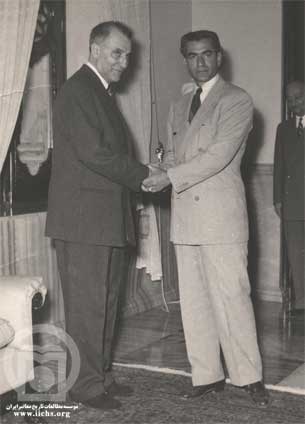
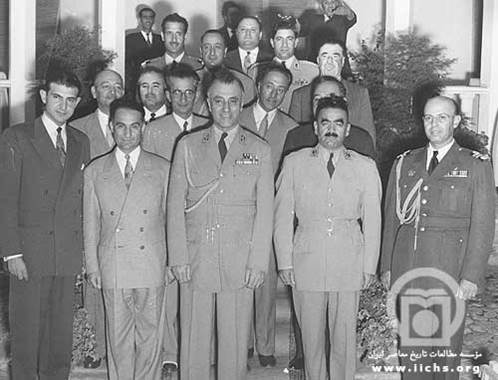

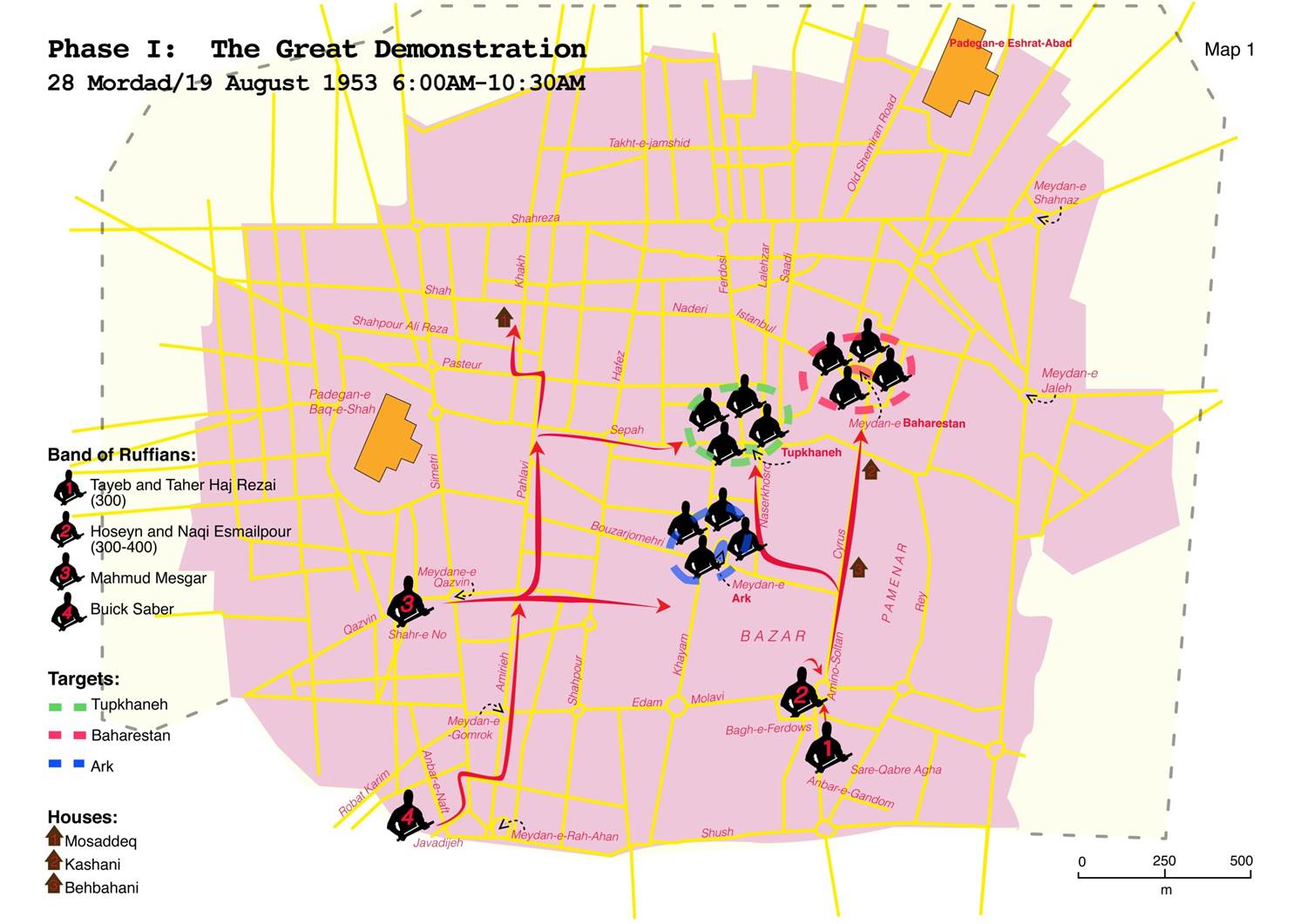
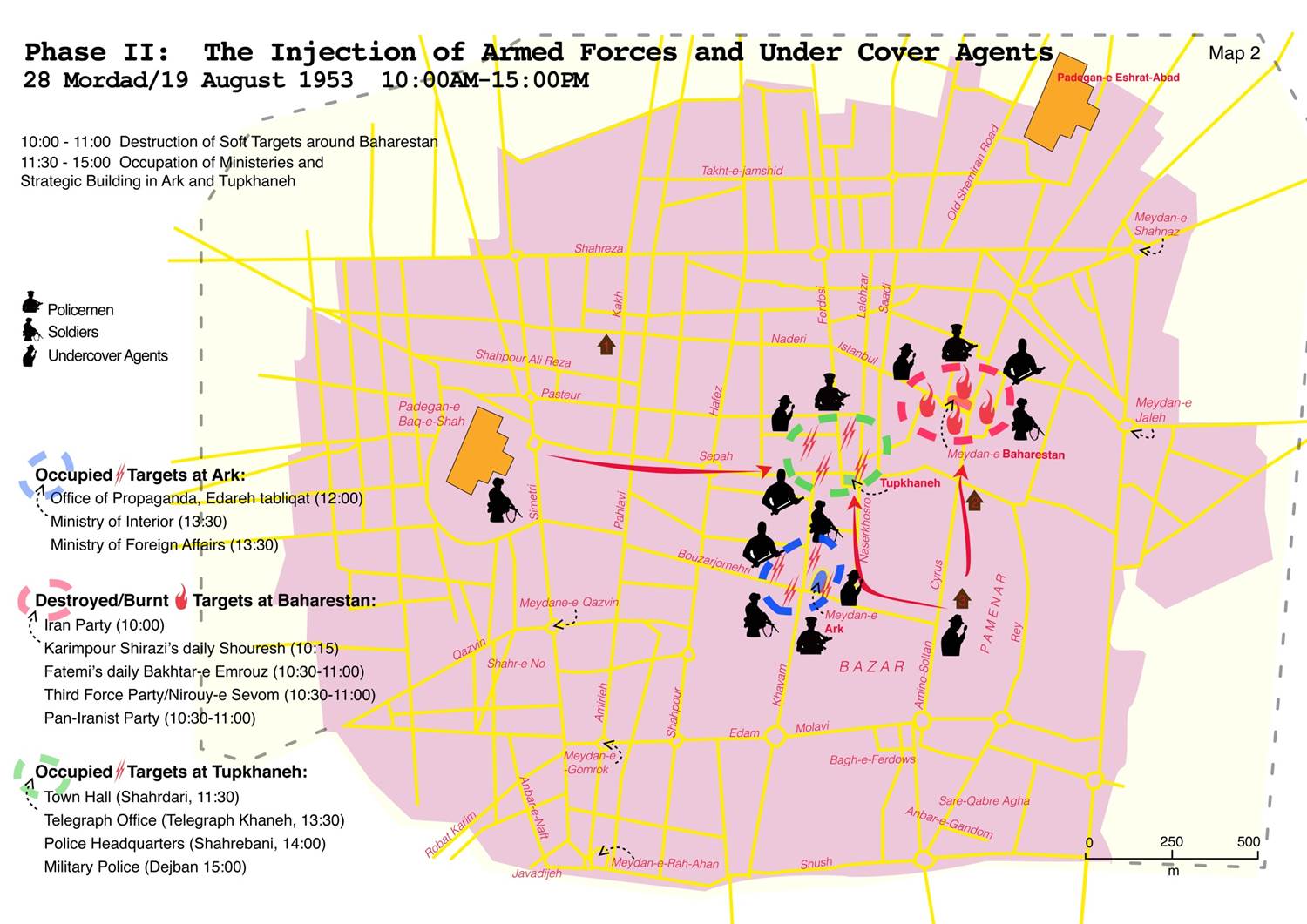
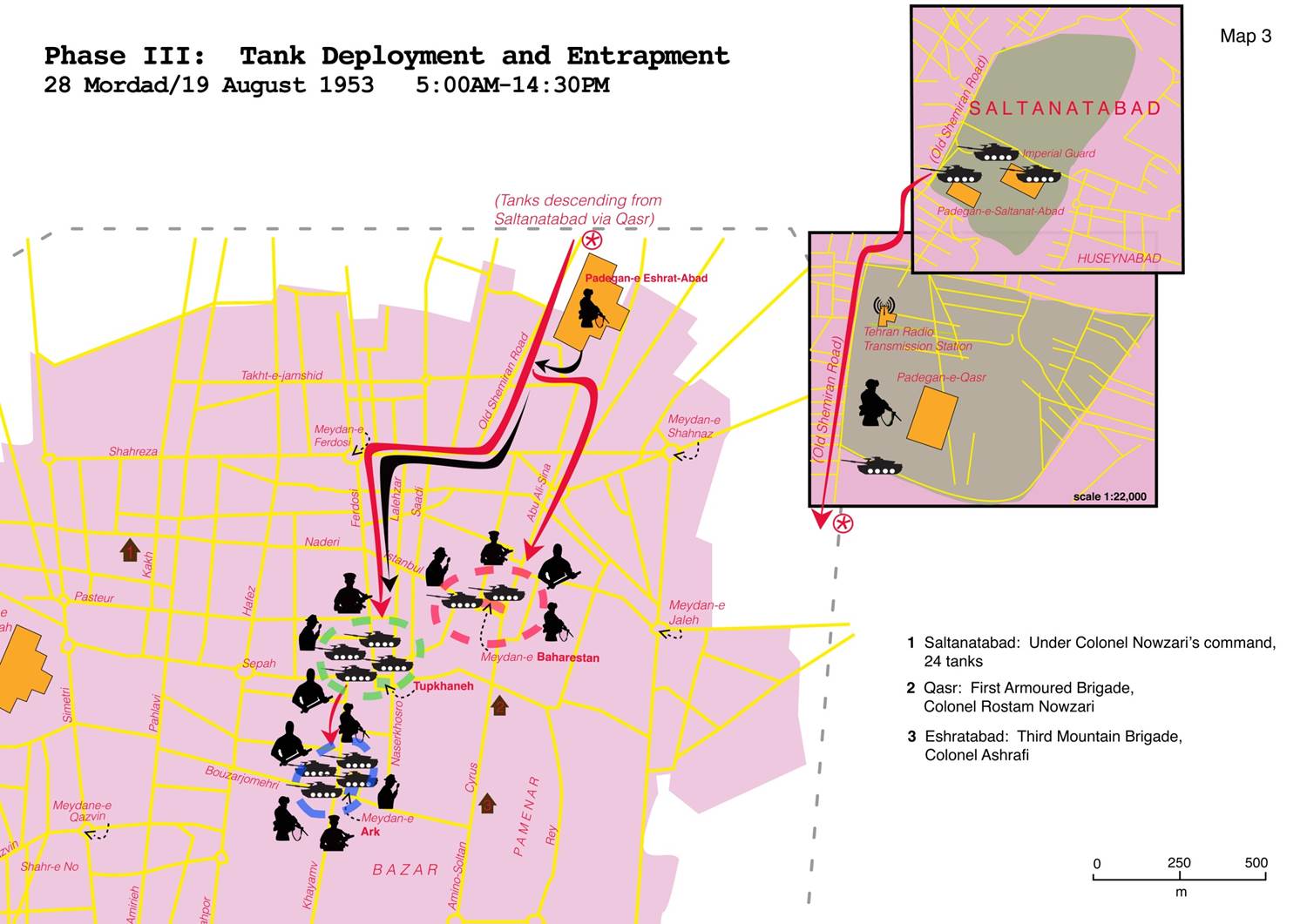
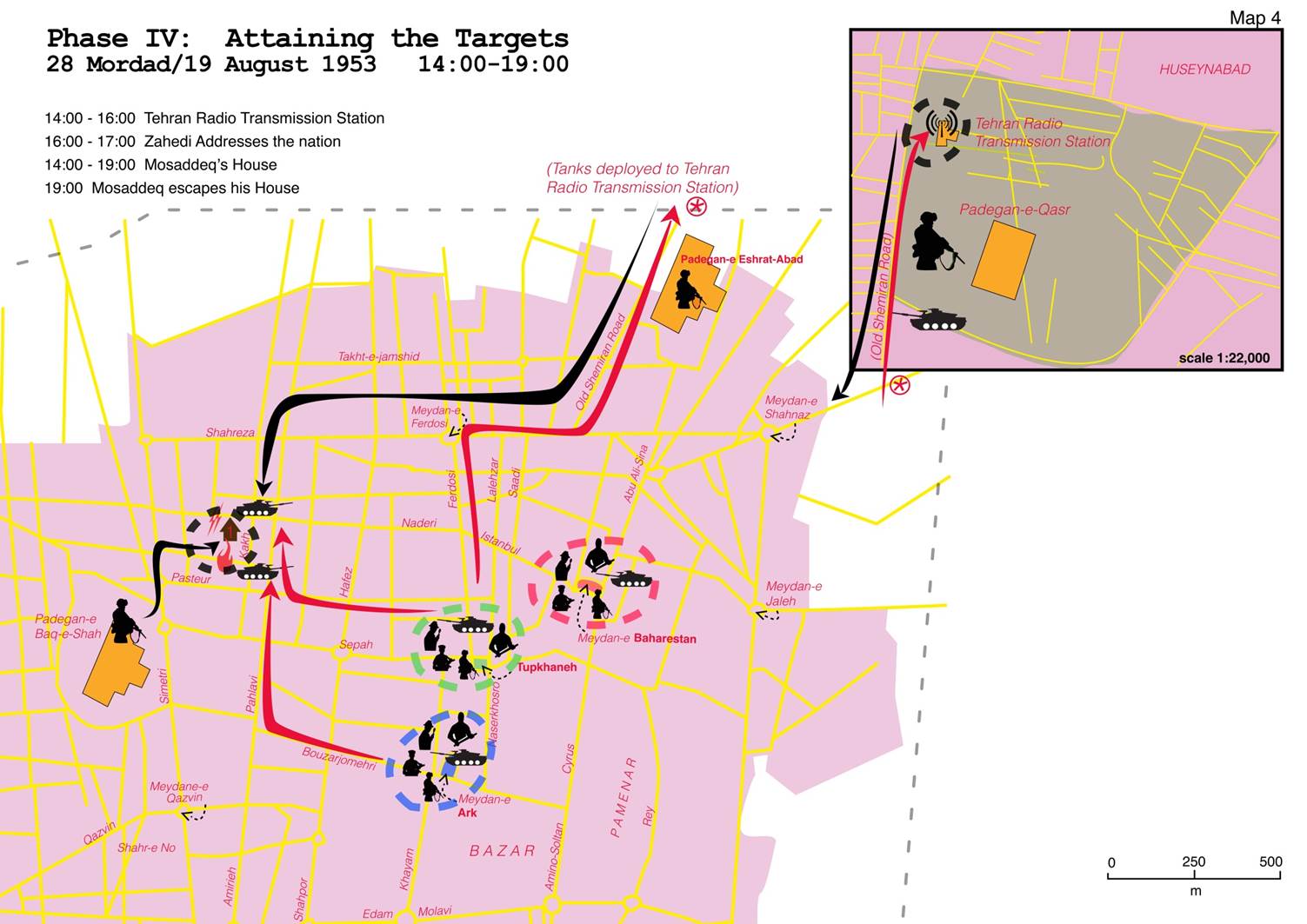
0 Response to "Newly Single Wanting to Date Again"
Post a Comment